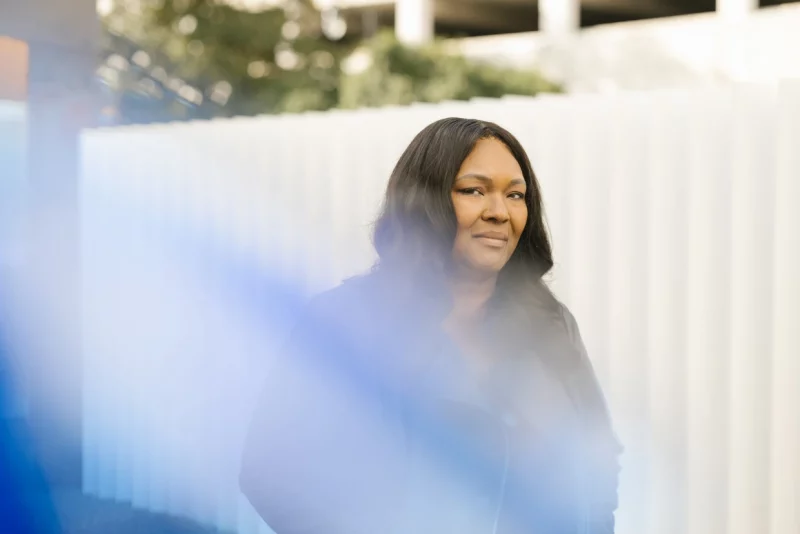They were diagnosed with uterine cancer and tumors. Now they’re suing the makers of chemical hair straighteners.
Share
Explore Our Galleries
Breaking News!
Today's news and culture by Black and other reporters in the Black and mainstream media.
Ways to Support ABHM?
By Janelle Griffith, NBC News

Three years ago, Rhonda Terrell was diagnosed with an aggressive form of uterine cancer that has since spread to her abdomen and liver. She underwent a radical hysterectomy — the removal of the uterus, cervix, ovaries and fallopian tubes — and tried to come to terms with the way the disease had altered her life.
“I don’t like to look at the survival rates,” Terrell said through tears. “Cancer is such a painful, painful, painful condition.”
Terrell is one of four Black women, three of whom spoke to NBC News exclusively, who have filed federal lawsuits against L’Oréal and other companies, alleging that chemicals in the companies’ hair products caused them to develop uterine cancer or other severe health effects. The lawsuits follow the release last month of a study by the National Institutes of Health that found that women who reported frequent use of hair straightening products — defined as more than four times in the previous year — were more than twice as likely to develop uterine cancer compared to those who did not use the products.
According to the lawsuits, three of the women have had a hysterectomy — one of them at age 28.
Terrell, 55, of Guin, Alabama, said she began relaxing her hair at age 8 and stopped in her late 30s or early 40s. She has uterine carcinosarcoma and underwent six rounds of chemotherapy and was in remission for a little over two years before the cancer returned in July on her liver and abdomen, according to an interview and her lawsuit. She is undergoing chemotherapy.
“If I had known all those years ago, if they had a warning on the box to say this could cause cancer, I wouldn’t have used it,” she said. “And I want to hold them accountable because I have granddaughters.”
NBC News has the full story.
Our breaking news section covers more Black health topics.









Comments Are Welcome
Note: We moderate submissions in order to create a space for meaningful dialogue, a space where museum visitors – adults and youth –– can exchange informed, thoughtful, and relevant comments that add value to our exhibits.
Racial slurs, personal attacks, obscenity, profanity, and SHOUTING do not meet the above standard. Such comments are posted in the exhibit Hateful Speech. Commercial promotions, impersonations, and incoherent comments likewise fail to meet our goals, so will not be posted. Submissions longer than 120 words will be shortened.
See our full Comments Policy here.